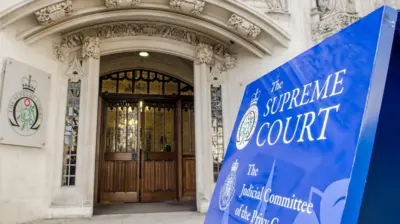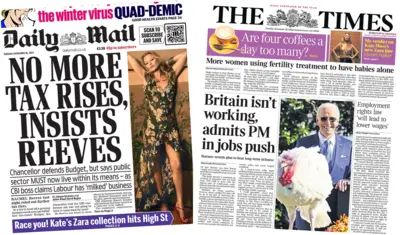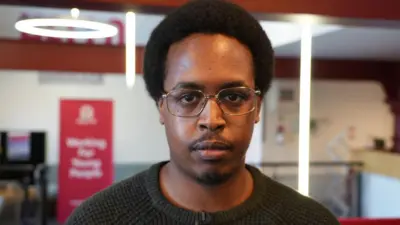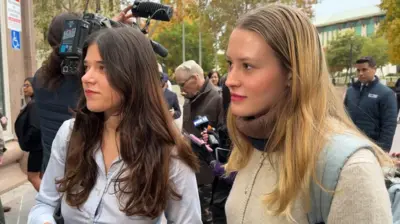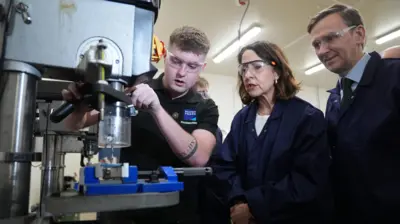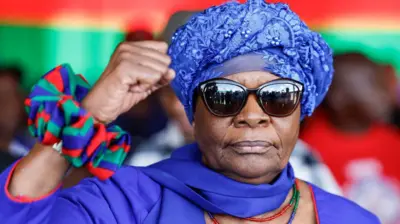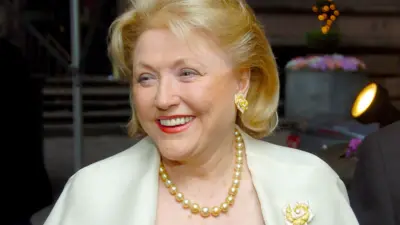We've updated our Privacy and Cookies Policy
We've made some important changes to our Privacy and Cookies Policy and we want you to know what this means for you and your data.
Tim Farron faces a tough job as Lib Dem leader
Image source, Getty Images
Top Stories
- Author, Ross Hawkins
- Role, Political correspondent
When Nick Clegg was elected leader of his party the Liberal Democrats had 62 MPs.
His successor - Tim Farron - has just eight: the worst parliamentary inheritance for a Liberal leader for almost 60 years.
When Nick Clegg was elected he had the full-throated support of that best-known of Lib Dems - Lord Ashdown.
Of Farron, Lord Ashdown has said: "Tim's a very able guy but at the moment judgement is not his strong suit."
Top Stories
The former business secretary Vince Cable has said: "I suspect he would not be seen as a very credible leader, at least now."
With the public doubts of his party colleagues ringing in his ears, and the electoral wreckage of 2015 at his feet, Farron's will be a tough job.
Top Stories
'Cold war relic'
It's so tough, you might wonder why anyone outside Lib Dem politics should pay much attention.
Here's why: the Lib Dems may have only eight MPs, but the government's got a majority of just twelve.
If the party can find common cause with the SNP and Labour and a few Tory rebels it can still make a difference.
And the Lib Dems have picked the left-wing candidate.
Farron will go out of his way to criticise Labour, and insist he doesn't believe in dividing politics into left and right, but it is difficult to imagine Lib Dems led by him supporting a future Conservative minority government.
The old Lib Dem insistence that they occupy the space mid-way between the Tories and Labour may totter.
On child tax credits at least, he sits to the left of Labour's current leader Harriet Harman. Unlike her, he disagrees with plans to restrict them to two children.
He may not ditch the Lib Dem's manifesto language on nuclear weapons overnight, but he has called Trident "a cold war relic".
Doorstep campaigning
Some key figures who have opposed the party shifting leftwards, former ministers like Jeremy Browne and Danny Alexander, are no longer MPs; he has room for manoeuvre.
The media will focus on his Christian faith, and how it has affected his politics. He abstained in a Commons vote on same-sex marriage in the last Parliament, although he says he supports, and would vote for, equal marriage.
But much of his job will involve the far-from-sacred business of doorstep campaigning, and finding an answer to a very simple question: how can the Lib Dems win back some of the 49 seats they lost at the last election?
That may be answered amid the fight for councils, mayoral contests and in the battles for the Welsh Assembly and Scottish Parliament.
Farron counts as one of his heroes Jo Grimond, the man who became leader of the Liberals at their previous lowest ebb - back in 1956, when they had only six MPs.
Grimond is credited with the salvation of the movement that evolved, in time, into the modern Liberal Democrat party.
If Farron succeeds in his job he could yet be remembered as the man who rescued his party in the twenty-first century.
If he fails he may yet be the leader who sees it consigned, once and for all, to oblivion.
Top Stories
More to explore
Most read
Content is not available
